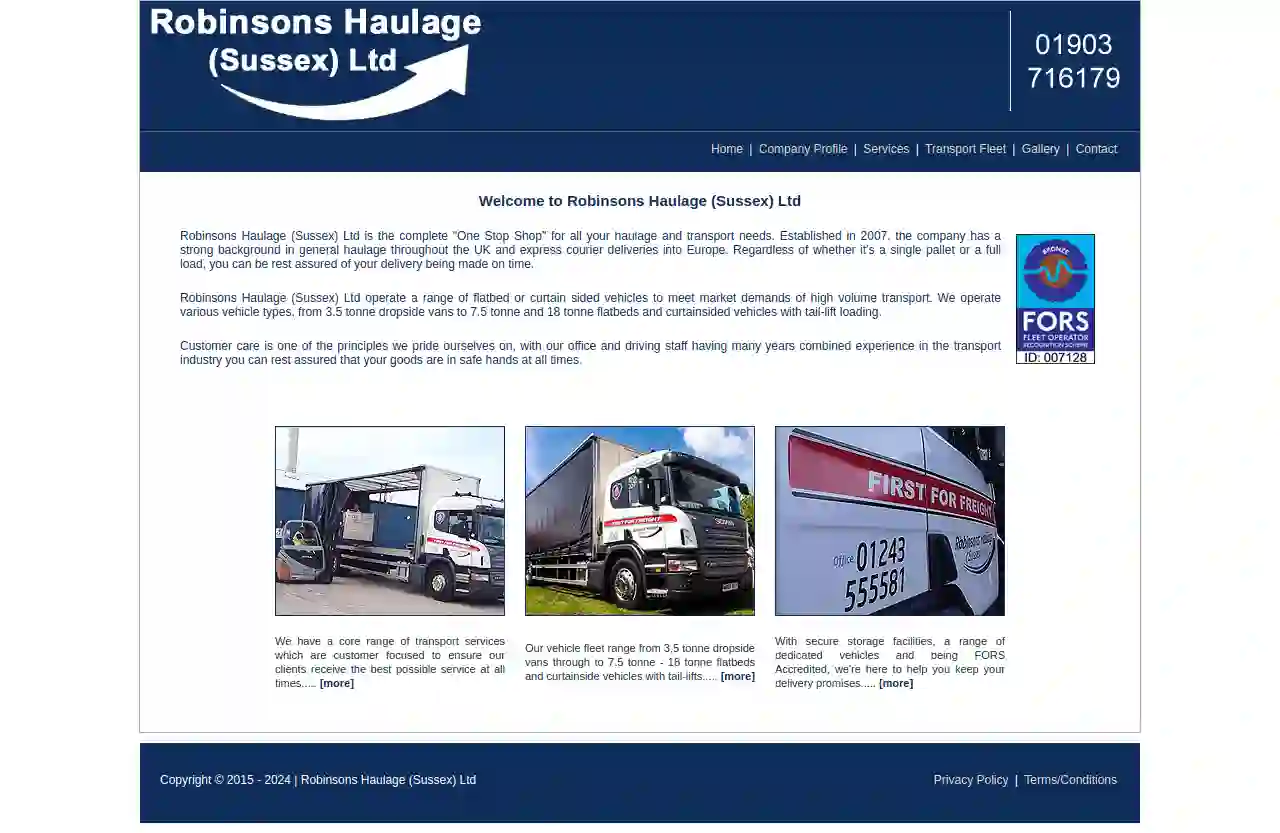Dirt Contractors Burgess Hill
Top Dirt Contractors in Burgess Hill
Receive multiple Dirt Contractors quotes for your project today! Compare profiles, reviews, accreditations, portfolio, etc... and choose the best deal.
- Ke
Kenward Groundworks & Plant Hire
4.210 reviewsWorthing, GB- Services
- Why Us?
Get Quote - Ay
Ayling Groundworks
1Littlehampton, GB- Services
- Why Us?
Get Quote 
Horsham Landscaping Specialists
551 reviewsHorsham, GBAbout Us Horsham Landscaping Specialists was founded by our owner, James. With over a decade of experience in the industry, James possesses a deep passion and keen eye for detail when it comes to garden design and construction. Our entire company is built upon a team with a strong work ethic and a shared passion for landscaping, always striving to deliver the highest quality results. This dedication has fueled our rapid growth, allowing us to assemble a team of dedicated landscapers serving both residential and commercial clients across the UK. Based in the Surrey Hills, Horsham, we proudly serve customers in the local and surrounding areas, including Crawley, Haywards Heath, Kilwood Vale, Billingshurst, Gatwick, London, Brighton, and Worthing. We undertake all aspects of hard landscaping, including retaining walls, patios, driveways (block, loose stone, resin), decking, and specialize in artificial grass.
- Services
- Why Us?
- Our Team
- Testimonials
- Gallery
Get Quote
Stonehouse Groundworks Ltd
52 reviewsLancaster’s farm, Littleworth lane, Lancaster’s farmLittleworth lanePartridge greenHorsham, Horsham, RH13 8EJ, GBWelcome to Stonehouse Groundworks & Construction Stonehouse Construction Services is a highly reputable and well established groundworks company providing a comprehensive groundworks, civil engineering and demolition service to commercial, industrial and private customers throughout the South East. Started by Jake Lovelock, Stonehouse Groundworks Ltd was trading from 2004 and incorporated in 2007. At Stonehouse Groundworks & Construction Ltd all plant is owned and maintained by ourselves, giving us flexibility to deal with any size project in house. Our trained staff draw on years of experience within the industry. At Stonehouse Groundworks & Construction Ltd holds comprehensive £10M public liability insurance, giving all clients peace of mind.
- Services
- Why Us?
- Accreditations
- Gallery
Get Quote
Ayling Groundworks & Plant Hire
51 reviewsThe Studio Office, Magnolias, Church Lane, Yapton, Arundel, West Sussex, BN18 0EH, GBAyling Groundworks: Your Trusted Partner for Groundworks and Civil Engineering Ayling Groundworks, established in 2012 and based in Arundel, West Sussex, is your one-stop shop for all your groundworks and civil engineering needs. We specialize in foundation, drainage, and landscaping works across multiple construction sectors throughout the South East. With over 35 years of experience in the construction industry, we've built a strong reputation for delivering high-quality workmanship, exceptional reliability, and professional project management. We are committed to continuous improvement, investing in new plant and technology while upholding our core values of prioritizing high health and safety standards in everything we do. Whether you're a homeowner, developer, or commercial client, we have the expertise and resources to handle your project from start to finish. Our team of skilled professionals is dedicated to providing you with the best possible service and exceeding your expectations.
- Services
- Why Us?
Get Quote
Central Plant Hire
4.937 reviewsHolmbush Farm, Crawley Road, Holmbush Farm Crawley Road Faygate Horsham West Sussex, Horsham, RH12 4SE, GBCentral Plant Hire is a leading provider of plant and digger hire in West Sussex and Surrey. We offer a wide range of equipment to suit all your needs, from mini diggers to dumpers and attachments. We are committed to providing our customers with the highest quality equipment and service. Our team is experienced and knowledgeable, and we are always happy to answer your questions. We offer competitive rates and flexible hire options to suit your budget. We are proud to be a local business, and we are committed to supporting our community. We are a member of the Construction Industry Federation (CIF) and we are fully insured.
- Services
- Why Us?
- Accreditations
- Gallery
Get Quote- PJ
PJ Seaman Groundworks
1Littlehampton, GB- Services
- Why Us?
Get Quote 
Robinsons Haulage Sussex Ltd
4.913 reviewsArea 3, Bairds Business Park, Hobbs New Barn, Bairds Business Park Hobbs New Barn Gravetts Lane, Climping West Sussex, Climping, BN17 5RX, GBAbout Robinsons Haulage (Sussex) Ltd Robinsons Haulage (Sussex) Ltd is a well-established haulage and transport company, founded in 2007. We've built a strong reputation for providing reliable and efficient services throughout the UK and Europe. Whether you need to move a single pallet or a full load, you can trust us to deliver on time and with the utmost care. We've grown from a single 3.5 tonne van to a fleet of vehicles ranging from 3.5 tonne dropside vans to 7.5 tonne and 18 tonne flatbeds and curtainsided vehicles with tail-lift loading. This allows us to cater to a wide range of transport needs, ensuring we have the right vehicle for every job. Customer satisfaction is at the heart of everything we do. Our team, with years of combined experience in the transport industry, is dedicated to providing exceptional service. We take pride in our commitment to safety and security, ensuring your goods are in safe hands at all times. We're proud to be FORS (Bronze) Accredited, demonstrating our commitment to safety, efficiency, and environmental responsibility. Our experienced and well-trained staff are committed to providing our clients with the highest level of service, keeping them informed every step of the way.
- Services
- Why Us?
- Accreditations
- Gallery
Get Quote- Ch
Chris Digs 4 U
1Worthing, GB- Services
- Why Us?
Get Quote - JM
JM Evans Mini Digger Hire
51 reviewsHorsham, GB- Services
- Why Us?
Get Quote
Over 11,537+ Excavation Pros on our directory
Our excavation pros operate in Burgess Hill and beyond!
ExcavationHQ has curated and vetted Top Excavation Businesses in Burgess Hill. Find a top & reliable contractor today.
Frequently Asked Questions About Dirt Contractors
- Plant Selection: Understanding your soil's pH and nutrient levels helps you choose plants that will thrive in those conditions.
- Fertilizer Recommendations: Soil tests reveal nutrient deficiencies, allowing you to apply appropriate fertilizers to meet plant needs.
- Soil Amendments: Identify soil imbalances, such as compaction or high clay content, and recommend amendments to improve soil structure and drainage.
- Construction Projects: Assess soil bearing capacity and other properties to ensure the stability and safety of foundations and other structures.
- Environmental Assessments: Detect potential soil contamination and determine the need for remediation.
- Project Scope: The size and complexity of the project, including the volume of dirt to be moved, the distance for hauling, and the type of services required.
- Dirt Type: Different dirt types have varying costs based on availability and demand. Topsoil is typically more expensive than fill dirt.
- Location: Costs may differ depending on the contractor's location and the accessibility of the project site.
- Equipment Needed: Specialized equipment, such as excavators, bulldozers, or dump trucks, can influence the overall cost.
- Labor Costs: The number of workers and their hourly rates will affect the labor portion of the cost.
- Excavators: Versatile machines with a digging arm and bucket, used for excavation, trenching, loading trucks, and demolition.
- Bulldozers: Heavy machines with a large blade at the front, used for pushing and moving dirt, clearing land, and grading.
- Skid Steers: Compact, versatile machines with various attachments, including buckets, forks, and augers, used for digging, loading, grading, and more.
- Dump Trucks: Heavy-duty trucks designed for hauling dirt, gravel, and other bulk materials. Sizes vary based on carrying capacity.
- Graders: Machines with a long blade used for precise leveling and shaping of land surfaces, often used for road construction and site preparation.
- Compactors: Equipment used to compress soil, including plate compactors, rollers, and vibratory tampers, essential for achieving soil stability.
What is a soil test, and why is it important?
How much does it cost to hire a dirt contractor?
What are some common dirt contracting equipment?
What is the difference between topsoil and fill dirt?
Topsoil: The uppermost layer of soil, characterized by its rich organic matter content, nutrients, and dark color. It's essential for supporting plant growth and is commonly used for gardening, landscaping, and lawn establishment.
Fill Dirt: Primarily composed of subsoil or excavated materials, generally lacking the organic matter and nutrients found in topsoil. It's typically less fertile and used for structural purposes, such as filling in low areas, leveling ground, or creating raised beds.
Understanding the difference between topsoil and fill dirt is crucial for choosing the appropriate soil type for your specific project needs.
What is a soil test, and why is it important?
- Plant Selection: Understanding your soil's pH and nutrient levels helps you choose plants that will thrive in those conditions.
- Fertilizer Recommendations: Soil tests reveal nutrient deficiencies, allowing you to apply appropriate fertilizers to meet plant needs.
- Soil Amendments: Identify soil imbalances, such as compaction or high clay content, and recommend amendments to improve soil structure and drainage.
- Construction Projects: Assess soil bearing capacity and other properties to ensure the stability and safety of foundations and other structures.
- Environmental Assessments: Detect potential soil contamination and determine the need for remediation.
How much does it cost to hire a dirt contractor?
- Project Scope: The size and complexity of the project, including the volume of dirt to be moved, the distance for hauling, and the type of services required.
- Dirt Type: Different dirt types have varying costs based on availability and demand. Topsoil is typically more expensive than fill dirt.
- Location: Costs may differ depending on the contractor's location and the accessibility of the project site.
- Equipment Needed: Specialized equipment, such as excavators, bulldozers, or dump trucks, can influence the overall cost.
- Labor Costs: The number of workers and their hourly rates will affect the labor portion of the cost.
What are some common dirt contracting equipment?
- Excavators: Versatile machines with a digging arm and bucket, used for excavation, trenching, loading trucks, and demolition.
- Bulldozers: Heavy machines with a large blade at the front, used for pushing and moving dirt, clearing land, and grading.
- Skid Steers: Compact, versatile machines with various attachments, including buckets, forks, and augers, used for digging, loading, grading, and more.
- Dump Trucks: Heavy-duty trucks designed for hauling dirt, gravel, and other bulk materials. Sizes vary based on carrying capacity.
- Graders: Machines with a long blade used for precise leveling and shaping of land surfaces, often used for road construction and site preparation.
- Compactors: Equipment used to compress soil, including plate compactors, rollers, and vibratory tampers, essential for achieving soil stability.
What is the difference between topsoil and fill dirt?
Topsoil: The uppermost layer of soil, characterized by its rich organic matter content, nutrients, and dark color. It's essential for supporting plant growth and is commonly used for gardening, landscaping, and lawn establishment.
Fill Dirt: Primarily composed of subsoil or excavated materials, generally lacking the organic matter and nutrients found in topsoil. It's typically less fertile and used for structural purposes, such as filling in low areas, leveling ground, or creating raised beds.
Understanding the difference between topsoil and fill dirt is crucial for choosing the appropriate soil type for your specific project needs.